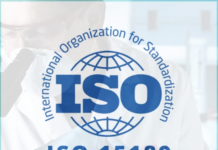4 October 2024, Tbilisi, Georgia
Tatia Gotchadze, SheniEkimi.ge
Migration is a global phenomenon that affects millions of people worldwide. According to the International Organization for Migration (IOM), more than 280 million people live outside their countries of birth, many of whom are refugees or asylum seekers . These populations often face unique challenges in accessing healthcare services due to language barriers, cultural differences, and the trauma they have experienced. For healthcare systems, adapting to these needs requires a proactive approach, including the implementation of culturally sensitive care practices.
To address these challenges, the World Health Organization (WHO) developed the Global Competency Standards for Health Workers, which provide a framework for healthcare professionals to deliver inclusive, high-quality care to all patients, regardless of their background . For countries like Georgia, where migration flows are increasing, these standards are critical to ensuring the health and well-being of both migrants and the local population.
The Role of Healthcare Workers in Inclusive Care
Healthcare workers play a fundamental role in delivering care that meets the specific needs of migrants and refugees. These professionals are often the first point of contact for individuals who have endured hardship, and they must be equipped to provide compassionate, effective care. The WHO Global Competency Standards emphasize the importance of understanding cultural differences, building trust, and ensuring that language barriers do not hinder care .
An example of successful implementation of these standardshttps://www.who.int/news-room/fact-sheets/detail/migration-and-health can be seen in Italy, where a program was introduced in primary care clinics to provide interpreters and cultural mediators for migrant patients. This initiative resulted in increased patient satisfaction and improved health outcomes for refugees and migrants . Such models could be adapted and implemented in Georgia to address similar challenges in its healthcare system.
Professor Giorgi Pkhakadze, Chair of the Public Health Institute of Georgia, explains the importance of these standards for the country’s healthcare system:
“Globally, healthcare systems are facing the challenge of providing care to diverse populations. In Georgia, the WHO’s competency standards are essential for equipping our health workers to deliver high-quality, inclusive care, particularly as we continue to welcome more migrants and refugees.”
Regional Relevance and Georgia’s Growing Migration Trends
Georgia’s role as both a transit and destination country for migrants and refugees is expanding. Many individuals from neighboring countries, including conflict zones in the Caucasus and beyond, seek refuge or pass through Georgia on their way to Europe. As a result, the demand for healthcare services tailored to the needs of these populations is growing .
In response to these trends, healthcare systems in Georgia must adapt by integrating culturally sensitive practices. This includes training healthcare workers to understand the cultural, social, and emotional needs of migrants and refugees. For instance, healthcare professionals in Georgia might encounter patients from countries with different medical practices or health beliefs. It is crucial for health workers to understand these differences and provide care that respects their patients’ backgrounds, while still adhering to medical best practices.
An example of this approach is the “Health-For-All” initiative in Germany, which focuses on providing culturally sensitive healthcare services to refugees. The program includes training healthcare professionals on refugee health issues, language support, and integrating psychosocial care to address trauma experienced by migrants . A similar initiative in Georgia could bridge the gap between migrants’ needs and the services provided.
The Importance of Medical Institutions, Nursing Schools, and NGOs
Medical institutions and nursing schools play a critical role in preparing healthcare professionals to address the needs of migrants and refugees. These educational institutions are responsible for integrating migrant health and cultural competency into their curricula. This includes teaching future doctors and nurses how to navigate the complexities of working with diverse populations, and ensuring they are equipped to provide culturally sensitive care.
In Canada, nursing schools have integrated cultural competency modules that align with Accreditation Canada’s standards, which emphasize patient-centered care. These modules help healthcare workers understand the cultural, linguistic, and psychological needs of vulnerable populations, ensuring better health outcomes .
Non-governmental organizations (NGOs) focused on medical and public health services also play a vital role in supporting healthcare systems. NGOs provide direct care to migrant populations, as well as essential resources such as translators, cultural mediators, and mental health services. Public health NGOs can collaborate with healthcare providers to address the social determinants of health that disproportionately affect migrants and refugees.
In Georgia, public health-focused NGOs like the Georgian Red Cross and other local organizations can partner with hospitals and clinics to extend these services, ensuring that all migrants and refugees have access to comprehensive care .
The Role of Continued Medical Education (CME) Providers and Accreditation
Continued medical education (CME) is essential for healthcare workers to stay informed about the latest best practices in migrant and refugee health. CME providers can offer specialized courses focused on cultural competency, trauma-informed care, and language access, ensuring that healthcare workers are well-prepared to address the evolving needs of migrant populations. Incorporating the WHO’s Global Competency Standards into CME programs would help ensure that healthcare workers continue to develop the skills necessary for providing culturally sensitive care.
One example of a successful CME program is Canada’s Refugee Health Online, which provides healthcare professionals with ongoing training in refugee health, including trauma-informed care and cultural competency . Implementing similar programs in Georgia would provide healthcare workers with the tools they need to meet the specific needs of migrants and refugees.
Accreditation of healthcare facilities is another critical factor in improving the quality of care for migrants and refugees. Many international healthcare accreditation bodies, such as Accreditation Canada, have standards that emphasize patient-centered care, which is a cornerstone of the WHO competency standards. For example, Accreditation Canada’s standards for cultural competence require healthcare providers to ensure that all patients, regardless of their cultural background, receive care that respects their values and beliefs .
Accreditation processes in Georgia can be strengthened by incorporating similar cultural competency standards, ensuring that healthcare facilities are equipped to provide patient-centered care to all individuals, including migrants and refugees. This would also align with Georgia’s ongoing efforts to modernize its healthcare system and meet international best practices.
The Importance of Implementing Standards in Georgia
For Georgia, the integration of WHO’s competency standards into the healthcare system is not only about improving care for migrants but also about fostering regional leadership in healthcare. By adopting these standards, Georgia has the opportunity to become a leader in inclusive healthcare practices in the Caucasus region.
Implementing these standards also aligns with Georgia’s ongoing efforts to modernize its healthcare system. Training healthcare workers in cultural competency will improve patient satisfaction, enhance trust in the healthcare system, and ultimately lead to better health outcomes for both local and migrant populations.
Moreover, adapting the global standards to the Georgian context—translating them into the local language and embedding them into the country’s medical education programs—will ensure that healthcare workers are prepared to provide high-quality care to all residents of Georgia, including vulnerable migrant populations.
Conclusion
As migration trends continue to evolve, the healthcare systems of countries like Georgia must adapt to provide inclusive, culturally sensitive care. By adopting the WHO Global Competency Standards for Health Workers, Georgia can improve healthcare outcomes for migrants and refugees while positioning itself as a leader in the region.
Involving medical institutions, nursing schools, NGOs, and CME providers in these efforts will be key to ensuring the success of this initiative. Together, these stakeholders can strengthen Georgia’s healthcare system, enhance its ability to respond to the needs of diverse populations, and contribute to a more inclusive society. Accreditation of healthcare facilities with a focus on cultural competency will also be a key factor in ensuring that healthcare services are truly patient-centered.
Enroll in the free, self-paced Global Competency Standards e-course: https://bit.ly/3Y5juaZ
References
1. International Organization for Migration. World Migration Report 2022. IOM [Internet]. 2022 [cited 2024 Oct 4]. Available from: https://www.iom.int/wmr-2022
2. World Health Organization. WHO Global Competency Standards for Health Workers. WHO [Internet]. 2021 [cited 2024 Oct 4]. Available from: https://www.who.int/health-topics/migration
3. World Health Organization. Migration and Health. WHO [Internet]. 2021 [cited 2024 Oct 4]. Available from: https://www.who.int/news-room/fact-sheets/detail/migration-and-health
4. UN High Commissioner for Refugees. Italy: Promoting inclusive healthcare. UNHCR [Internet]. 2022 [cited 2024 Oct 4]. Available from: https://www.unhcr.org/italy-inclusive-health
5. United Nations High Commissioner for Refugees. Georgia Fact Sheet – March 2024. UNHCR [Internet]. 2024 [cited 2024 Oct 4]. Available from: https://www.unhcr.org/georgia-fact-sheet
6. Federal Office for Migration and Refugees. Health for All: Inclusive healthcare for migrants. BAMF [Internet]. 2023 [cited 2024 Oct 4]. Available from: https://www.bamf.de/healthforall
7. Accreditation Canada. Cultural Competency in Healthcare. Accreditation Canada [Internet]. 2022 [cited 2024 Oct 4]. Available from: https://www.accreditation.ca/cultural-competency
8. International Federation of Red Cross and Red Crescent Societies. Refugee Health Services. IFRC [Internet]. 2023 [cited 2024 Oct 4]. Available from: https://www.ifrc.org/refugee-health
9. Canadian Refugee Health Network. Continuing Medical Education in Refugee Health. CRHN [Internet]. 2023 [cited 2024 Oct 4]. Available from: https://www.crhn.ca/cme-refugee-health
#drpkhakadze #sheniekimi




